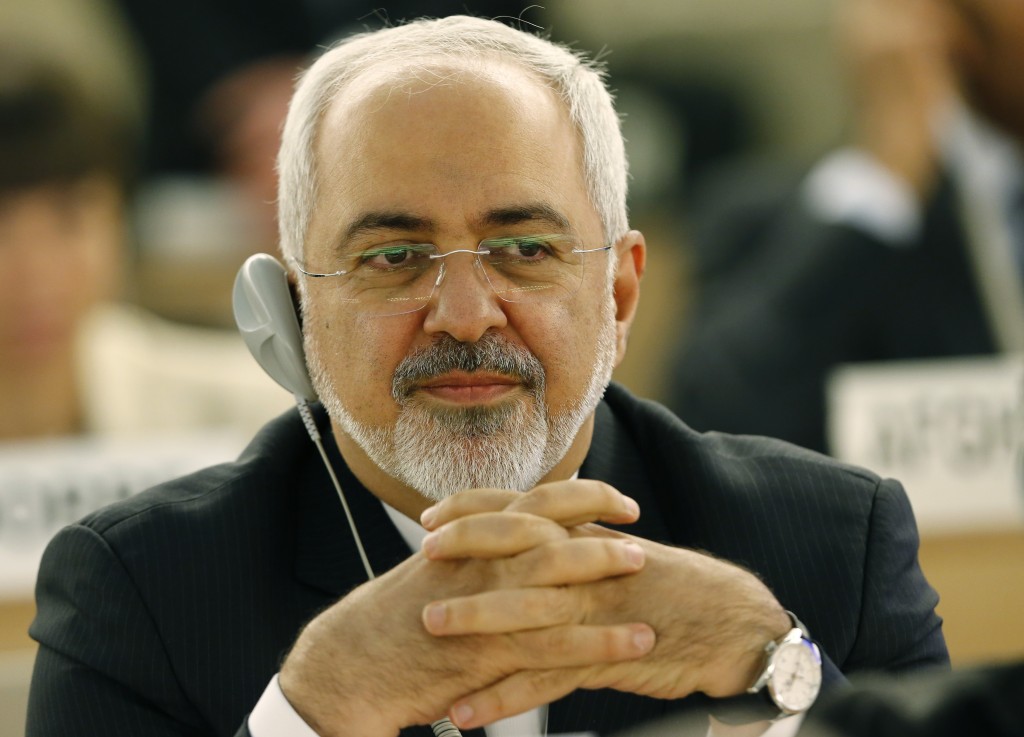Iranian Foreign Minister Mohammad Javad Zarif’s recent political essay published by “The New York Times,” raised a few eyebrows. The essay was short to overstatements and wild allegations directed against “Wahhabism,” claiming that Saudi Arabia is the reason behind all humanity’s suffering.
However, the chink in armor for any biased opinion is that “You can bend it and twist it… You can misuse and abuse it” but no one can “change the Truth,” a quote by Michael Levy.
Opinions can be based on perception and understanding, nevertheless reality is not subjective nor a disputable issue, neither is the truth.
Zarif should keep in mind that former U.S. President Ronald Reagan once said “Facts are stubborn things.”
On the argument pointing fingers as to what had led to the very establishment of terror organizations, such as al-Qaeda and its likes, and especially on the allegations of Wahhabism’s involvement in extremism some 250 years ago—centuries-old assumptions cannot deny the modern day facts on Saudi Arabia has suffered most of terror’s viscous attacks.
Alternatively, Iran has not been targeted once by any of today’s prominent terror organizations—despite the hate talk ISIS-styled organizations direct against Tehran.
The Lebanon-based militant group, Hezbollah, is publicly funded and armed by Iran—not to mention that the latter is officially accused, since the Iranian Revolution in 1979, by members of the international community of funding, providing equipment, weapons, training and giving sanctuary to terrorists.
The United States State Department labels Iran as an “active state sponsor of terrorism.”
It is also worth mentioning that Iran has the only constitution worldwide which clearly states expansionism for a creed. On the other hand, when facing accusations of adopting Wahhabism, Saudi Arabia’s constitution clearly dictates that the state’s official and dominant religion is Islam and Islam alone.
Not only that but over 12 international embassies were attacked in Iran over the past 25 years; most recently being against the UK diplomatic mission in 2011, and the one against the Saudi missions earlier this year.
Zarif’s biased article, lacking facts, resorted to exploiting anti-Wahhabbi sentiment to fill the gaps with opinions rather than sharp reality; while alternately, an essay cannot enclose enough present fact-listing which proves Iran’s involvement with international terror funding.
When tracing back al-Qaeda terror, it is evident that the first series of attacks were against Saudi Arabia. One of which is the 2003 Riyadh compound bombings– 39 people were killed, and over 160 wounded when bombs went off at three compounds housing foreigners in the Saudi capital.
The inhumane plot was put into motion by high-ranking al-Qaeda member Saif al-Adel, residing in Iran at the time, according to documentations, leads and recorded phone calls; nevertheless, the Iranian government refused to extradite the terror orchestrator to Saudi Arabia prior to the heinous attack.
Moreover, Iran’s ties to extremism run deeper than roots, dating before any political interests or national emergencies were at hand.
A year into the Khomeini-led Iranian revolution taking over the reins, Egypt vaguely began stumbling into turmoil, as the radical Egyptian Islamic Jihad movement united with civil protestors to topple president Anwar Sadat. The coup was chiefly incited by Sadat granting the Shah, Mohammad Reza Pahlavi, asylum, who Khomeini had ousted.
Moreover, Khalid Islambouli, an Egyptian army officer who planned and participated in the assassination of Egypt’s third president, Anwar Sadat, is a highly revered historical figure in Iran, for taking out Iran’s regional discomfort.
Iran’s suspicious ties to international terrorism are perceived worldwide— a federal courthouse in New York had accused Tehran of involvement in the Sept. 11 attacks and had requested it to pay $10.5 billion in compensation to the families of the victims.
Perhaps FM Zarif must reconsider the facts once again.
Further speculations are stirred, that when set on the timeline, Saudi Arabia or any other Gulf country did not experience a single terror-staged tragedy before Khomeini’s revolution. Moreover, sectarian strife, and bigoted language were also unheard of.
Before the revolution, Gulf countries enjoyed diverse communities coexisting harmoniously, away from the demons of politics or sectarian differences.
Extremism was never to be found. Iranians and Arabs, Sunnis and Shi’ites lived moderately. It was only after Khomeini’s table turning that cases of both Shi’ite and Sunni extremism began emerging.
When comparing the two, Shi’ite extremism -manifested in militant proxies strategically placed across the world – is backed, funded and recognized by the Iranian government. Meanwhile, Sunni extremism is fiercely fought by all Muslim countries.
Perhaps Iran’s Zarif must once again reconsider hard facts before voicing opinions as to who backs terror ideology.
